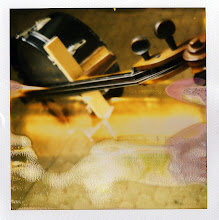When Archie Shepp (tenor sax / vocals) performed this music live in Algiers in 1969 whilst backed with a fully equipped Algerian folk group, he must have relished the radical, bold, and culturally significant sentiment that this was going to be released on French jazz label Actuel. As we know, Shepp is probably up there with the most conscientious of all jazz artists concerning black civil rights (akin with John Coltrane, Max Roach, and the AACM), and given the north African country’s tumultuous history with France less than a decade prior to this recording, this was a bold move for all parties involved. When I picked up Live at the Panafrican Festival, this stood out as one of the main reasons as to why this record--a relatively unconsidered record in Shepp’s back catalogue--should be so significant and so exciting; this is how it was decided to immortalise the first Algerian panafrican festival.
Shepp also took this opportunity to showcase a handful of his associate players, as well as--in a manoeuvre typical of Shepp--combine jazz with performance poetry (courtesy of Ted Jones and Don Lee). From Shepp’s late 60s Paris line up (who also feature on Blasé and Black Gipsy) he’s joined by Clifford Thornton (cornet), Dave Burrell (piano), and the infamous Sunny Murray (drums), as well as the two new additions of Grachan Moncur III (trombone), and Alan Silva (bass).
In some ways this record bears notable characteristics of Shepp’s late 60s work; pounding repeated trance motifs formed out of black folk rhythms; expressive looseness and free improvisation which convey a spiritual identity; experimenting with ideas that reference folklore. Yet, with the addition of the Algerian folk ensemble (or Algerians musicians as Shepp credits on the record), there is a large emphasis on Eastern micro-tonality, harmonies, and polyrhythmic temperament that hadn’t really been used to this extent in avant-jazz composition as much as it had in avant-garde classical composition, which in turn also sets this record aside from any other Shepp record. The successful emergence of these forms in avant-garde rock music today further begs the question of the unconsidered nature of this record.
The tonality of the compositions also hark back to much earlier Shepp. Whilst Brotherhood at Ketchaoua is slightly reminiscent of The New-Contemporary Five, the tonal centering and pace of the thirty minute epic We Have Come Back has similarities with Gingerbread, Gingerbread Boy. Unfortunately however, the length of the second piece also contributes to a lack of direction in Shepp’s playing about halfway through, only to be picked up again towards the end. In spite of this, and the fact that the lack of recording quality also loses a lot of the players and vocalists definition (on occasion resulting to a buzz of playing) this still remains to be one of the more exciting Shepp records I’ve heard. On that note I can safely say I wish I was there when this was being recorded.
Wednesday, 29 April 2009
Subscribe to:
Posts (Atom)

